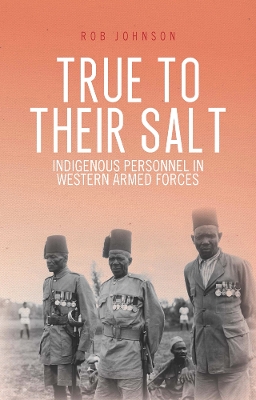In the last decade an Iraqi Army and an Afghan National Army were created entirely from scratch, the founding of which was deemed to be a crucial measure for the establishment of security and the withdrawal of Western forces from Iraq and Afghanistan. Raising new armies is always problematic, especially during an insurgency, but doing so outside the sovereignty of one's own state raises questions of legality, concerns about their conduct and the risk of an over-empowered local military. The recruitment of proxies, including former insurgents, or the arming of local fighters and auxiliaries, levies and militias, may also exacerbate an internal security situation. In seeking answers to this conundrum Rob Johnson turns to history. His book sets out how recruitment of local auxiliaries was an essential component of European colonialism, and how, in the transfer of power and security at the end of that colonial era, the raising of local forces using existing Western models became the norm. He then offers a comprehensive survey of the post-colonial legacy, particularly the recent utilisation of surrogates and auxiliaries, the work of embedded training teams, and mentoring. Rob Johnson is Departmental Lecturer in the History of War, University of Oxford, and author of The Afghan Way of War: Culture and Pragmatism, A Critical History, published by Hurst.
- ISBN13 9781849044257
- Publish Date 12 October 2017
- Publish Status Active
- Publish Country GB
- Imprint C Hurst & Co Publishers Ltd
- Format Hardcover
- Pages 240
- Language English
